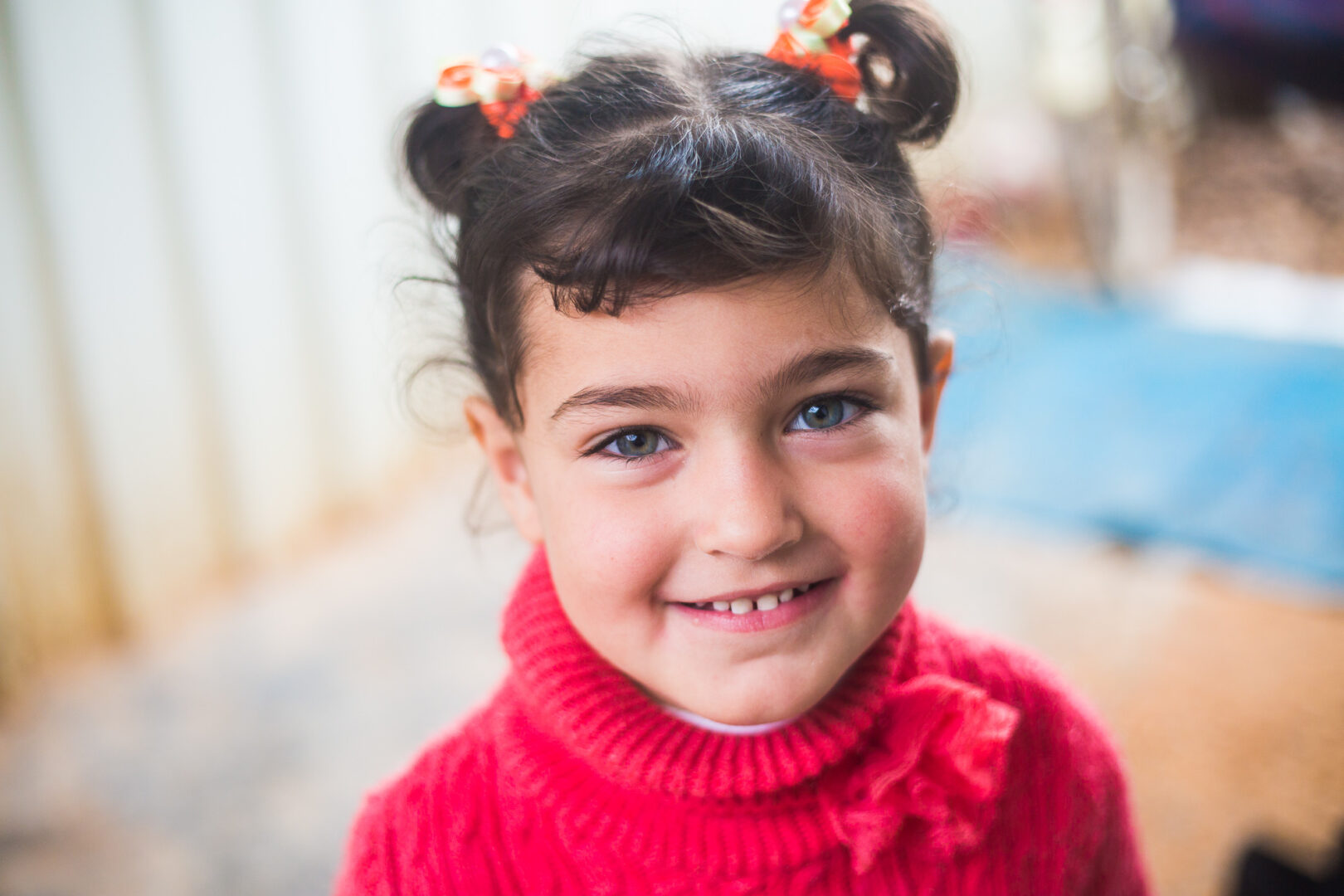The new report, “The Mountain is in Front of Us and the Sea is Behind Us,” is based on nearly 50 interviews conducted by AIUSA with refugees currently living in Lebanon and Jordan. The report describes the desperate circumstances faced by families who continue to be locked in an impossible limbo because of discriminatory U.S. policies as they try to seek safe a new life and permanent home.
“These are families who put their trust in the United States at their most desperate hour, and now find themselves on the brink of catastrophe through absolutely no fault of their own,” said Denise Bell, researcher at AIUSA. “They have already made the wrenching decision to leave their homes and are now bearing the discriminatory impacts of US policies. Their situation is only getting worse. The U.S. government must live up to its promise to these families and countless other refugees. It has a responsibility to protect refugee rights, and turning its back on refugees is one more abysmal abdication of its obligations. ”
Among the refugees that AIUSA spoke with were Ahmed Amari* (name changed for the family’s protection) and his family. They are Syrian refugees who fled to Beirut in 2013. They registered as refugees with the United Nations refugee agency UNHCR in 2014, and were told to prepare for their new home in Virginia in December 2016. When President Trump signed the Muslim ban in January 2017, Ahmed was told to wait until the ban was over before his case would proceed.
Two-and-a-half years after he was initially cleared to enter the United States, Ahmed will soon lose his residency status, exposing him and his family to the risk of arbitrary arrest, detention, and forcible return to Syria. The carpet store where he works is closing in a few months, and it is extremely difficult to find a new job without a residency permit. The family cannot return to Syria because of the war for fear of the ongoing armed conflict and the possibility of forcible conscription by the Syrian military. “It is really hard, really difficult [living in limbo in Lebanon],” Ahmed and his wife Amina* told AIUSA.
Another refugee that AIUSA spoke with was Malik,* who fled from Baghdad to Beirut with his wife and two sons after fearing for their lives because of their Christian faith. Malik’s family had gone so far as to complete trainings to prepare for their new lives in the U.S. after his case was approved. Since the Muslim Ban was signed in 2017, his case has been held up due to what he is told are “security checks,” even though it was previously approved.
When asked what he would say if he could speak with President Trump, Malik said, “We are refugees. We’re human refugees. We’re refugees because there are difficult situations that made us flee . . . Please, so that we’re able to live. We want to live; we want to live in peace.”
The U.S. has historically resettled the largest number of refugees annually from around the world. Since the modern U.S. Refugee Assistance Program was established in 1980, the average number of persons being resettled each fiscal year was 80,000. This changed in 2017 when one of President Trump’s first acts in office was to cut the refugee admissions goal from 110,000, which President Obama set in his last year in office, to 45,000 — the lowest refugee admissions cap ever set to that point. Barely 22,000 refugees were resettled by the end of FY 2018 – the lowest number admitted in the history of the program. Under the current U.S. administration, refugee resettlement has dropped 71 percent in three years.
Trump’s discriminatory policies have decimated refugee resettlement from Lebanon and Jordan, which host the highest number of refugees in the world relative to their populations.
The report also chronicles the devastating effects of the elimination of U.S. funding for the U.N. Relief and Works Agency for Palestinian Refugees (UNRWA). The report recommends fully restoring humanitarian assistance to UNRWA’s critical mandate in providing humanitarian assistance to refugees in the region.
“Refugees are not a threat, and refugees are not just numbers,” said Bell. “Refugees are women, men, and children with unique stories to tell. We talked to teachers, artists, engineers, laborers, and homemakers – people like you and me and everyone we know. All they want is what any person in their situation would want – safety, a place to call home, work to support themselves, and education for their children. They just want to live with dignity.”
The report calls on the U.S. to hold to the goal of admitting at least 30,000 refugees in FY 2019, and to increase the goal to at least 95,000 in 2020 .
“Congress must do its job and hold the Trump administration accountable to refugees,” said Ryan Mace, grassroots advocacy and refugee specialist for AIUSA. “This means rejecting the president’s proposed devastating cuts and instead providing life-saving humanitarian aid to refugees and displaced populations. The administration must ensure that the United States does not discriminate against refugees based on how they worship or where they come from.”

